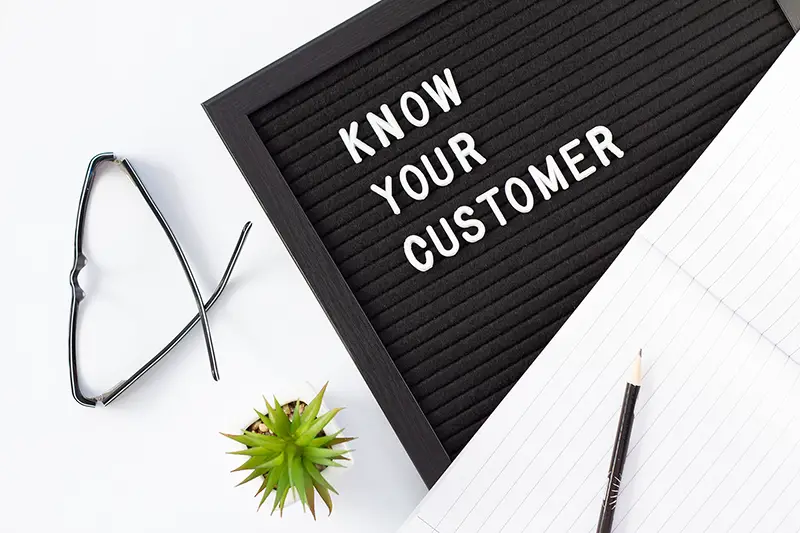Click here to get this post in PDF
The term ‘Know Your Customer’ or KYC, can be used in many aspects of your business, from sales to marketing. However, it should be noted that the term is mainly used for due diligence and compliance terms in the financial and regulatory sectors.
In order to follow KYC, you need to follow the process of verifying the identity of your clients before you commence business with them. It can be done with a mix of screenings, and it often varies from company to company. You will likely come across ID verification, identifying the ultimate beneficial owner, anti-money laundering screenings, and many more.
Many regulated sectors are required by the law to have a KYC policy within their onboarding process. Other businesses are following suit in order to combat the criminal activity that has become much rifer in recent years. KYC is a process that is best described as an umbrella term that has lots of varied due diligence and compliance checks within it. It is not mandatory, but it can help your business from falling victim to fraud.
Do you need it?
This can really depend on where your business is based. For example, in the UK, the Money Laundering Regulations of 2017 offer advice on staying compliant with companies. However, every industry will have a different governing body regulating and driving KYC policies. Suppose your business is covered by the Money Laundering Regulations. In that case, you will need to carry out due customer diligence measures to check that your customers are who they claim to be and so that you can carry a risk assessment before you begin working with them.
Know your customer policies are there to protect your business from falling victim to fraud and losses due to dealing with illegal transactions at a fundamental level. KYC checks have been evolving and expanding for some time as criminal activity also continues to grow in corruption, terrorist financing, and money laundering. One of the main tools you can do to combat these horrors is to utilize the KYC policies.
What is a KYC policy?
Know Your Customer policies will differ from company to company, but all will begin by collecting basic information from your customers. You can do this through electronic identity verification. This information is then screened against databases to confirm the person is who they say they are. It can also be screened against a list of individuals that are renowned for criminal activity and corruption.
Normally, individuals will also be screened against the Politically Exposed Person’s list to ensure that they are not an easy target for bribery or at risk of money laundering. After this check has been carried out, you can determine how much risk it is to have a client working with you. Finally, you can use this information to decide which clients you can and should take on for your business.
Records
An important aspect of the KYC process is to have an up-to-date and neat collection of records. This will keep a record of all of the due diligence measures that you have carried out. Governing bodies recommended having a minimum 12-month record of due diligence. Your documents should include customer identification documents, risk assessments, policies, controls, and procedures as well as training records.
Equally, it is very useful to comply with those details of all of the measurements you have taken out. This will give you an audit trail of every step to show you have complied if your business ever comes under investigation. Compliance checks should also be scheduled regularly to ensure that you have the full details of all of your clients to hand when you need them.
Is it worth it?
KYC checks can be a long and drawn-out process. This is especially true if you are doing these checks manually. Many companies tend to have a team of people checking potential clients. This costs hours and hours of labor that could perhaps be spent better elsewhere. You should check to see if your customer policies are costing you time and money when it comes to your customer onboarding process. If it is, you should look to streamline it to be more cost-effective.
Ultimately, the KYC process serves two purposes. First, it is to help your business manage the risk regarding illegal activity when you take on new clients or even protect your existing clients. Also, it can help your company adhere to the local government acts.
You may also like: Little-Known Facts About Know Your Customers
Image source: Shutterstock.com

